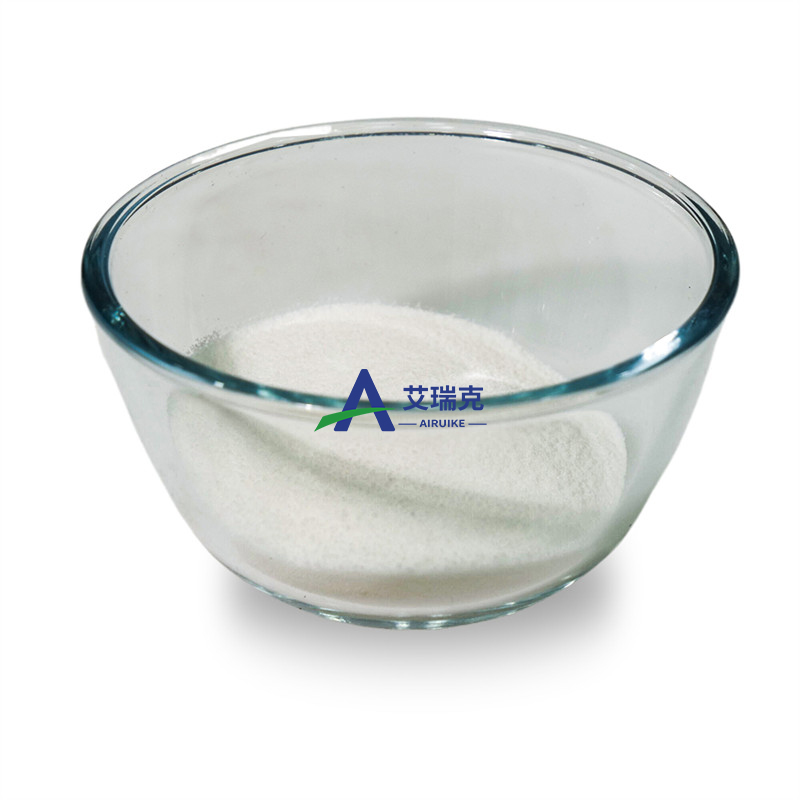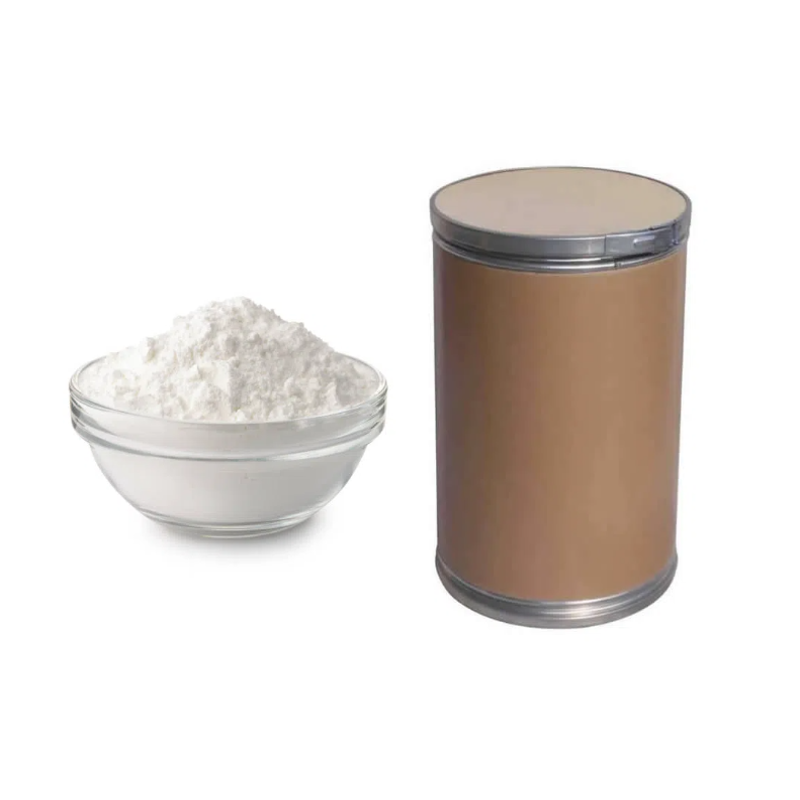-
Categories
-
Pharmaceutical Intermediates
-
Active Pharmaceutical Ingredients
-
Food Additives
- Industrial Coatings
- Agrochemicals
- Dyes and Pigments
- Surfactant
- Flavors and Fragrances
- Chemical Reagents
- Catalyst and Auxiliary
- Natural Products
- Inorganic Chemistry
-
Organic Chemistry
-
Biochemical Engineering
- Analytical Chemistry
-
Cosmetic Ingredient
- Water Treatment Chemical
-
Pharmaceutical Intermediates
Promotion
ECHEMI Mall
Wholesale
Weekly Price
Exhibition
News
-
Trade Service
Guide
The 25th National Congress of Clinical Oncology and the 2022 CSCO Annual Conference were held
in Beijing, Jinan and Harbin from November 5 to 12 in the form of a combination of offline and online.
The theme of this year's conference is precision innovation, wisdom and humanities, and we will join hands with experts and scholars in various oncology fields across the country to carry out in-depth academic exchanges and scientific and technological cooperation, share clinical research and innovation achievements, deeply discuss precision oncology based on multidisciplinary standardized comprehensive treatment, and actively promote the development of
disciplines.
In the special session on prostate cancer, Professor Li Yonghong from Sun Yat-sen University Cancer Hospital brought us the updated content
on metastatic hormone-sensitive prostate cancer (mHSPC) in the 2022 CSCO Prostate Cancer Diagnosis and Treatment Guide.
The following is compiled for the readers
.
Professor Li Yonghong
Deputy Director of the Department of Urology, Sun Yat-sen University Cancer Hospital, Head of the Third Urology District
Chief physician Master tutor
Specialist in single disease of prostate cancer
Outstanding Young Medical Talents of Guangdong Province
Member of the Prostate Cancer Expert Committee of the Chinese Society of Clinical Oncology (CSCO).
Member of Andrology Group, Urology Branch of Chinese Medical Association
Member of the Standing Committee of the Asian Society of Cryotherapy
Leader of the Urological Tumor Ablation Professional Group of the Tumor Ablation Treatment Technical Expert Group of the Chinese Medical Doctor Association
Secretary of the Genitourinary Oncology Professional Committee of Guangdong Anti-Cancer Association
Da Vinci Robotic Urology Senior Training Instructor
He specializes in the diagnosis and treatment
of prostate cancer.
As the first/corresponding author, he has published more than 20 papers in journals such as "European Urology", "Clinical Cancer Research", "Prostate", "Prostate Cancer and Prostatic disease", "Urology", etc.
, and the research results have been cited by NCCN guidelines in the United States, CSCO guidelines in China and Campbell Urology
He presided over a number of research funds such as the National Natural Science Foundation of China
Professor Li Yonghong said that mHSPC patients should undergo detailed and thoughtful examination and evaluation before receiving treatment, mainly including general examination, confirmatory examination and other auxiliary examinations
.
General examination: past medical history, family history, PSA tests, hematologic evaluation, major organ function, digital rectal examination
.
Confirmatory examination: pathological biopsy of prostate puncture, pathological biopsy of metastases
.
Ancillary examinations: bone scan, CT/MRI, abdominal ultrasound, PET/CT.
According to the CHAARTED study, mHSPC is classified as high tumor burden and low tumor burden, which is defined as the presence of ≥ 4 bone metastases (of which ≥ 1 bone metastases are located outside the pelvis or spine) or the presence of visceral metastases, and the absence of these factors is low tumor burden
.
Treatment options for low-burden mHSPC
Professor Li Yonghong mentioned that for mHSPC with low tumor burden, androgen deprivation therapy (ADT) is the cornerstone, and it is recommended to combine other treatment options, such as antiandrogeries, endocrine therapy drugs and external beam therapy
.
It is worth noting that based on the results of the ARASENS study, the 2022 version of the CSCO guideline added the triple regimen of ADT+ darolutamide + docetaxel as a grade I recommendation
for low tumor burden and high tumor burden mHSPC.
The ARASENS study was a randomized, double-blind, placebo-controlled phase III study of patients with mHSPC (ECOG PS 0-1) who were candidates for ADT and docetaxel, and who were assigned 1:1 to either treatment (ADT + darrotamide + docetaxel) or placebo (ADT + docetaxel), with the primary endpoint of overall survival (OS).
Studies have shown that a triple regimen of ADT+darutamide + docetaxel reduces the risk
of death by 32.
5% compared with placebo.
The results of subgroup analysis showed that the risk of death of newly diagnosed mHSPC patients, who accounted for a large proportion of patients in China, was significantly reduced by 29.
3% after receiving the triple regimen.
For patients with relapsed mHSPC, triple regimens reduce the risk
of death by 39.
5%.
In addition, other secondary endpoints of the ARASENS study, such as time to CRPC, time to pain progression, time to asymptomatic skeletal event, time to first symptomatic skeletal event, and time to initiation of subsequent systemic antineoplastic therapy, suggest that patients can benefit
from the triple regimen.
Professor Li Yonghong also pointed out that clinical experts are more concerned about the adverse events caused by ADT combined with new endocrine drugs, but the incidence of adverse events in the two groups in the ARASENS study is similar
.
Professor Li Yonghong pointed out that another concern in the guidelines is that based on the results of the SWOG 1216 study, the 2022 version of the CSCO guidelines updated ADT+ bicalutamide to the level I recommendation
for low tumor burden mHSPC.
The SWOG 1216 study was a randomized, open-label, phase III study of patients with mHSPC who were randomized to TAK700 (novel androgen receptor inhibitor) + ADT and bicalutamide + ADT, with the primary endpoint of OS
.
The results showed no statistically significant difference
in OS results between the two groups.
Professor Li Yonghong pointed out that in mHSPC patients with low tumor burden, ADT combined with bicalutamide can also effectively improve the survival outcome
of patients under the condition that follow-up treatment is effective.
Treatment options for high tumor burden mHSPC
Similar to treatment regimens for low tumor burden mHSPC, androgen deprivation therapy (ADT) is the cornerstone
.
Professor Li Yonghong pointed out that one of the focuses of this update is based on the results of the PEACE-1 study, and the CSCO guidelines recommend the triple drug regimen of ADT+ abiraterone + docetaxel as a grade I recommendation
for high tumor burden mHSPC.
The PEACE-1 study was a randomized, open-label, 2×2 factorial design, phase III clinical study to evaluate the efficacy and safety
of standard care (SOC, treatment regimen ADT±docetaxel) + abiraterone + prednisone ± radiotherapy.
Studies have shown that this triple regimen can effectively prolong OS (p=0.
03) and radiographic progression-free survival (rPFS, p<0.
0001)<b11> in the overall patient.
Patients with low tumor burden mHSPC could not benefit from this triple regimen (p=0.
66), while the median OS of patients with high tumor burden mHSPC was extended from 3.
5 years to 5.
1 years, and the benefit was more significant (HR=0.
72, p=0.
019).
Professor Li Yonghong pointed out that the second concern is that, according to the results of the CHART study, the CSCO guidelines added ADT+roverutamide as a grade I recommendation
for high tumor burden mHSPC.
The CHART study is an international multi-center, randomized, controlled and open phase III.
clinical trial led by Professor Ye Dingwei of Fudan University Cancer Hospital and presented orally at the 2022 ASCO Conference, which has attracted extensive attention
from scholars at home and abroad.
The CHART study included patients with mHSPC with high tumor burden who were randomised into an experimental group (reverutamide + ADT) and a control group (bicalutamide + ADT), with the primary endpoints of OS and rPFS
.
The results showed that the rPFS of patients in the reverutamide group was significantly improved, and the risk of disease progression or death decreased by 56% (HR=0.
44, p<0.
0001), and the OS of patients in the reverutamide group was also significantly improved, and the risk of death was reduced by 42% (HR=0.
58, p=0.
0001).
<b10> At the same time, the quality of life of patients in the reverutamide group was also significantly improved, and the incidence and severity of adverse events in both groups were similar, and the safety was ideal
.
Professor Li Yonghong pointed out that most of the Chinese groups included in this study are more valuable for clinical reference in Chinese patients
.
In addition to the above two updates, this CSCO guideline update downgrades the surgical resection or brachytherapy regimen of ADT+ primary lesion from a level II recommendation to a level III recommendation
.
Professor Li Yonghong pointed out that the downgrade is mainly due to the lack of strong evidence to prolong the survival of patients in this treatment regimen, but it has certain value for improving the quality of life of patients, especially reducing lower urinary tract symptoms, and its status may change somewhat with the accumulation of clinical evidence
.
Finally, Professor Li Yonghong pointed out that in the past year, mHSPC related research has achieved gratifying results
.
Based on relevant research progress, the 2022 CSCO guidelines have been updated, for patients with low tumor burden mHSPC, ADT+ biscalutamide continues the classic, and the treatment regimen of ADT+darutamide + docetaxel brings us new options; For patients with high tumor burden mHSPC, new ADT-based antiandrotherapy has become the preferred choice, and the triple regimen provides more clinical options, and the advent of revilumide has opened a new chapter
in domestic antiandrogenic drugs.
This platform is designed to deliver more medical information
to healthcare professionals.
The content published on this platform cannot replace professional medical guidance in any way, nor should it be regarded as diagnosis and treatment advice
.
If such information is used for purposes other than understanding medical information, this platform does not assume relevant responsibilities
.
The content published by this platform does not mean that it agrees with its description and views
.
If copyright issues are involved, please contact us and we will deal with
it as soon as possible.







